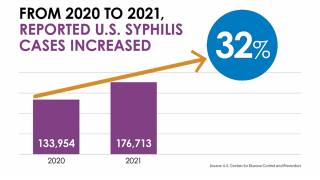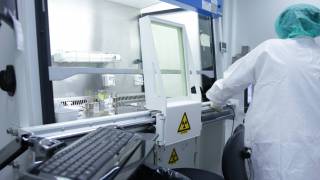Initial Made-In-China HPV Vaccine Approved

According to a notice from the National Medical Products Administration (NMPA), China has approved its first domestically made cancer prevention vaccine against the human papillomavirus (HPV) for use by females between the ages of 9 to 45.
This newly approved cancer prevention vaccine is designed to protect against HPV Type 16 and Type 18 the most common virus strains that lead to cervical cancer, reported China Daily on January 2, 2020.
China’s NMPA notice is reported to say ‘the (approval) green light granted to the domestically developed vaccine was intended to meet public demand.’
The new HPV vaccine, known as Cecolin, was jointly developed by Innovax, a biotechnology company based in Xiamen, Fujian province, China, in cooperation with Xiamen University.
Innovax reported more than 7,300 females across 5 provincial-level regions took part in the vaccine's 3rd-stage clinical trial in China's four-tier drug approval system.
During this clinical trial, Cecolin was able to provide protection against precancerous lesions related to HPV for all recipients and protection against persistent HPV infection for 97.8 percent of them, while demonstrating its safety.
These study results put the 2-valent vaccine on a par with the imported types in terms of its efficacy and safety, making it a world-leading vaccine product, the company said.
While most HPV vaccines are administered as a 3-dose injection, the Cecolin vaccine will require only 2-doses for a full vaccination procedure.
Zhang Jun, vice-dean of Xiamen University's School of Public Health, told the news website Jiemian.com that the domestic HPV vaccine was made using E. coli bacteria, which will cut production costs compared with its foreign counterparts and boost manufacturers' production capacity.
The company added that it will accelerate efforts to submit Cecolin’s applications for World Health Organization (WHO) vaccine prequalification, which examines the capacity and quality of a manufacturer, in order to expand the reach of the Chinese-made HPV vaccine and step up the global fight against cervical cancer.
According to a May 2018 study, China’s cervical cancer burden has a substantial effect on global estimates. An estimate suggested that the number of new cervical cancer cases in China was 100,000 every year, accounting for 29 percent of the world’s total.
The increasing trend in the incidence and mortality due to cervical cancer may be related to inadequate screening, increasing prevalence of HPV infection, and the lack of an HPV vaccine.
This study found only 21 percent of women in China reported ever undergoing a Pap Test.
In 2009, China’s government launched the National Cervical Cancer Screening Program in rural areas. It was the first time that the Chinese government had proposed to gradually widen access to cervical cancer screening services in rural areas, and it represented a step toward the nationwide provision of cervical cancer screening.
As of January 2019, the WHO says HPV is a group of 100 viruses that are extremely common worldwide, with at least 14 types cancer-causing. The HPV types (16 and 18) cause about 70 percent of cervical cancers and pre-cancerous cervical lesions.
HPV is mainly transmitted through sexual contact and most people are infected with HPV shortly after the onset of sexual activity, says the WHO.
To enhance vaccine quality control in China, the government announced to innovate solutions, which are:
- The NMPA and the National Health Commission announced on December 16, 2019, that China has a goal of launching a national vaccine tracking system before March 31, 2020.
- China’s Vaccine Administration Law was enacted on June 29th, 2019. This new law took effect on December 1, 2019, could be the foundation for better regulation and sound development of China’s vaccine industry.
Worldwide, HPV vaccines are produced by Glaxo-SmithKline and Merck & Co. As of April 2018, they had gained approval for commercial release in China, but some consumers had complained about a shortage of vaccines due to a sudden surge in demand following their approval in the country.
Previously, Xiamen Innovax Biotech said in a press release published on September 6, 2019, they had partnered with GSK Biologicals for the development and commercialization of a next-generation adjuvanted HPV vaccine.
In related HPV vaccine news, a new study from the University of Texas Health Science Center in Houston, Texas (UTHealth) supports making cervical cancer prevention easier for women.
This new UTHealth study published on December 27, 2019, revealed that just 1-dose of the HPV vaccine prevented cancer-causing virus infections.
The Centers for Disease Control and Prevention (CDC) currently recommends a 2-dose regimen for all children starting the series before age 15 or a 3-dose regimen if the series is started between ages 16 to 26.
The latest generation of HPV vaccine (Gardasil 9) can protect against nearly 90 percent of cancer-causing HPV infections.
HPV vaccine news published by Vax Before Cancer.
Our Trust Standards: Medical Advisory Committee

























